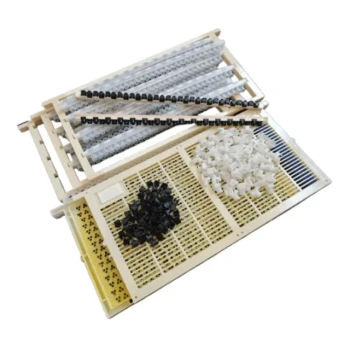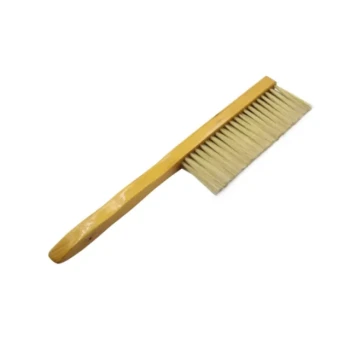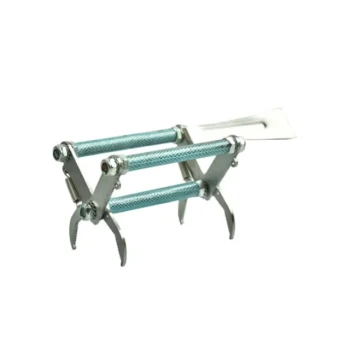In short, an orientation flight is a short, circular flight a newly emerged virgin queen bee takes to memorize the precise location of her hive. These flights are essential practice runs she performs a few days after her birth, ensuring she can safely return home from her more perilous mating flights that will occur later.
A virgin queen's entire life—and the survival of her colony—depends on her ability to leave the hive, mate, and return successfully. Orientation flights are the critical, low-risk navigational exercises that make this high-stakes journey possible.
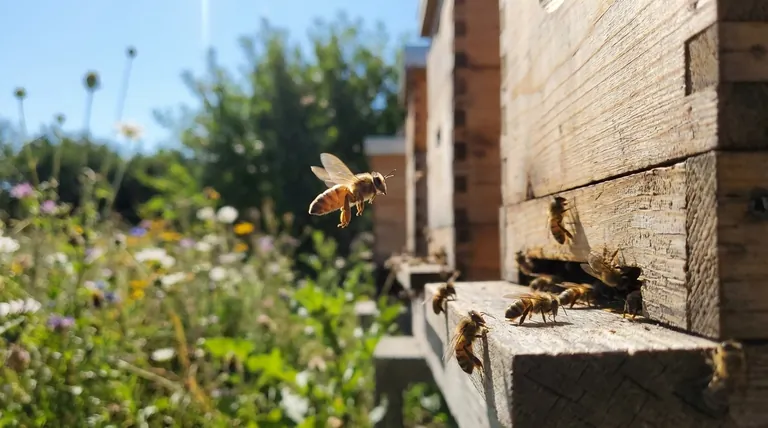
The Queen's Journey: From Emergence to Mating
To understand the importance of these flights, you must first understand the context of a new queen's early life. She is the single most important individual in the colony.
The First Few Days
A queen emerges from her peanut-shaped cell as a virgin. For the first few days, she is not yet sexually mature and spends her time moving through the hive. During this period, she prepares for the most important flights of her life.
The Need for a Mental Map
Unlike worker bees who take many foraging trips daily, a queen's flights are rare and extraordinarily important. Her mating flight will take her far from the hive into a Drone Congregation Area (DCA), where she will mate with multiple drones in mid-air.
If she cannot find her way back, the colony is doomed. It will become "hopelessly queenless" and die out. The orientation flight is her only chance to build a mental map of her home's location and its surrounding landmarks.
How an Orientation Flight Works
These flights are typically brief, often lasting only a few minutes. The queen will exit the hive, fly in small, ever-widening circles, and face the entrance. This allows her to memorize the hive's appearance, position relative to the sun, and nearby landmarks like trees or buildings.
Orientation vs. Mating Flights: A Critical Distinction
Beekeepers often confuse the two, but their purpose and nature are entirely different. Mistaking one for the other can lead to unnecessary concern or flawed hive management.
Purpose: Navigation vs. Reproduction
The sole purpose of an orientation flight is learning the hive's location. It is a solo navigational exercise.
The purpose of a mating flight is to become inseminated. The queen flies to a specific area to mate with drones from other colonies, ensuring genetic diversity.
Timing and Duration
Orientation flights happen first, typically 3-5 days after the queen emerges. They are very short, often under five minutes. A queen may take several of them on a warm, clear afternoon.
Mating flights occur a few days later, usually when the queen is 6-10 days old. They are longer, lasting anywhere from 15 to 30 minutes, as she must travel a significant distance.
Behavior at the Hive
An orientation flight is a relatively calm event. You may see the queen briefly at the entrance before she takes her short, circular flight.
A mating flight is often more dramatic. The queen may be escorted by a small retinue of worker bees and will leave the hive with more urgency and fly more directly away from the apiary.
Understanding the Risks and What to Do
While orientation flights are lower-risk than mating flights, any time a queen leaves the hive, she is vulnerable.
The Primary Danger: Predation
Birds, dragonflies, and other predators can easily catch a queen in mid-air. Even a short orientation flight carries this risk. A lost queen means a failed colony unless the beekeeper intervenes.
The Beekeeper's Role: Do Nothing
If you suspect a queen is on an orientation or mating flight, the best course of action is to leave the hive alone. Do not open the colony for inspection.
Disturbing the entrance or changing the hive's position can confuse the returning queen, causing her to get lost. Patience is the beekeeper's most valuable tool during this critical period.
Making the Right Choice for Your Hive
Understanding these behaviors is fundamental to successful queen rearing and colony management.
- If you have just installed a queen cell or a virgin queen: Be patient. It can take up to two weeks for her to complete her orientation flights, mate successfully, and begin laying eggs.
- If you see brief, circular flying in front of a queenless hive on a sunny afternoon: Recognize this as a positive sign that a new queen is present and preparing to mate.
- If your new queen fails to return: Understand that losses during these flights are common and a primary reason for requeening failures.
Knowing the purpose of an orientation flight transforms you from a passive observer into an informed beekeeper who understands the critical life cycle of the colony.
Summary Table:
| Aspect | Orientation Flight | Mating Flight |
|---|---|---|
| Purpose | Learn hive location (Navigation) | Mate with drones (Reproduction) |
| Timing | 3-5 days after emergence | 6-10 days after emergence |
| Duration | Short (under 5 minutes) | Long (15-30 minutes) |
| Risk Level | Lower (predation) | Higher (predation, getting lost) |
| Beekeeper Action | Leave hive completely undisturbed | Leave hive completely undisturbed |
Equip Your Apiary for Queen Success with HONESTBEE
Understanding queen behavior is just the first step. Ensuring your operation has the reliable, high-quality equipment needed to support healthy colonies is what separates successful commercial beekeepers from the rest.
HONESTBEE supplies beekeeping supplies and equipment to commercial apiaries and beekeeping equipment distributors through wholesale-focused operations. We provide the durable tools and infrastructure—from hive bodies to protective gear—that allow your queens to thrive and your business to grow.
Let's discuss how our wholesale solutions can strengthen your operation. Contact our team today to request a catalog or discuss your specific needs.
Visual Guide
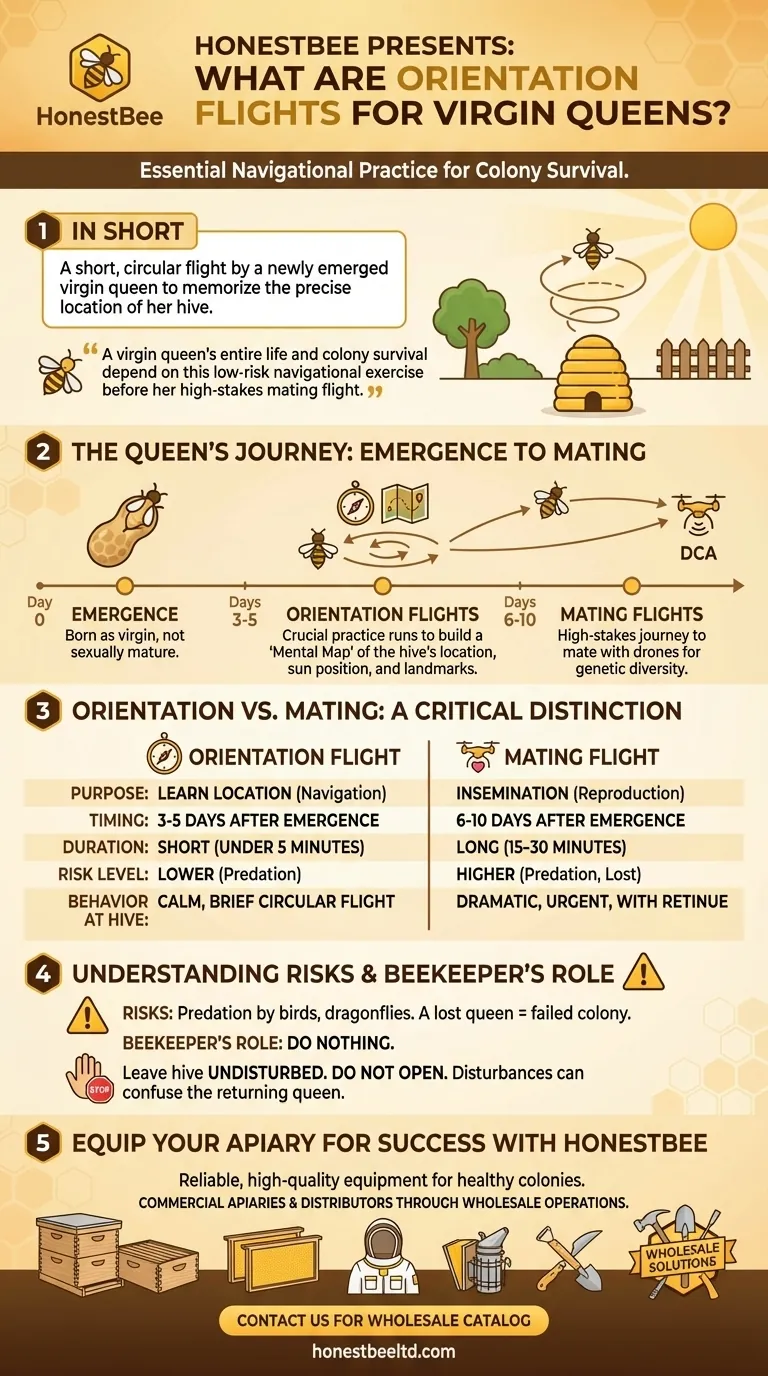
Related Products
- No Grafting Queen Rearing Kit: System for Royal Jelly Production and Queen Rearing
- Nicot Queen Rearing Kit for Beekeeping and Grafting in Nicot System
- JZBZ Langstroth Queen Rearing Frame for Beekeeping
- Professional Multi-Functional Queen Bee Cage
- Multi-Function Queen Roller Cage and Catcher
People Also Ask
- What functions do constant-temperature heating devices and insulated mating hives perform? Stabilize Queen Rearing Success
- What are the consequences of an early-emerging virgin queen? Prevent Hive Chaos and Protect Your Queen Line
- Why is raising queens beneficial for beekeepers? Gain Control Over Genetics and Costs
- Why must high-precision constant temperature and humidity incubators be used during the artificial rearing of honeybee larvae? Essential Equipment for Reliable Research
- What is the function of microscopic analysis equipment in queen bee breeding? Optimize Your Colony's Reproductive Potential
- What are the benefits of queen rearing for beekeepers? Gain Total Control Over Your Apiary's Genetics
- How does a precision Laboratory Incubator contribute to the queen bee emergence process? Optimize Queen Bee Quality
- Can anyone use Queen Rearing with JZBZ? A Beginner-Friendly System for All Beekeepers
